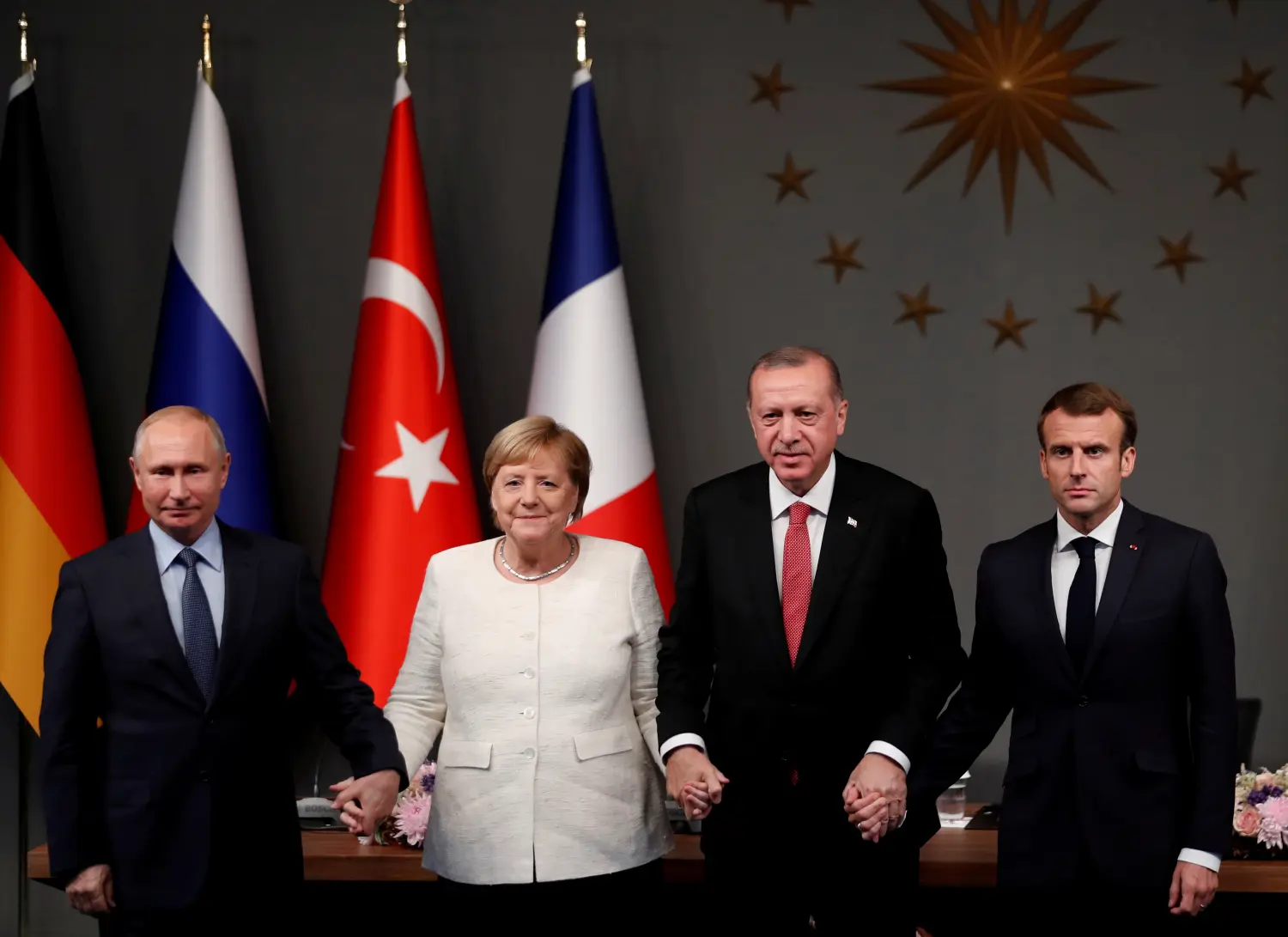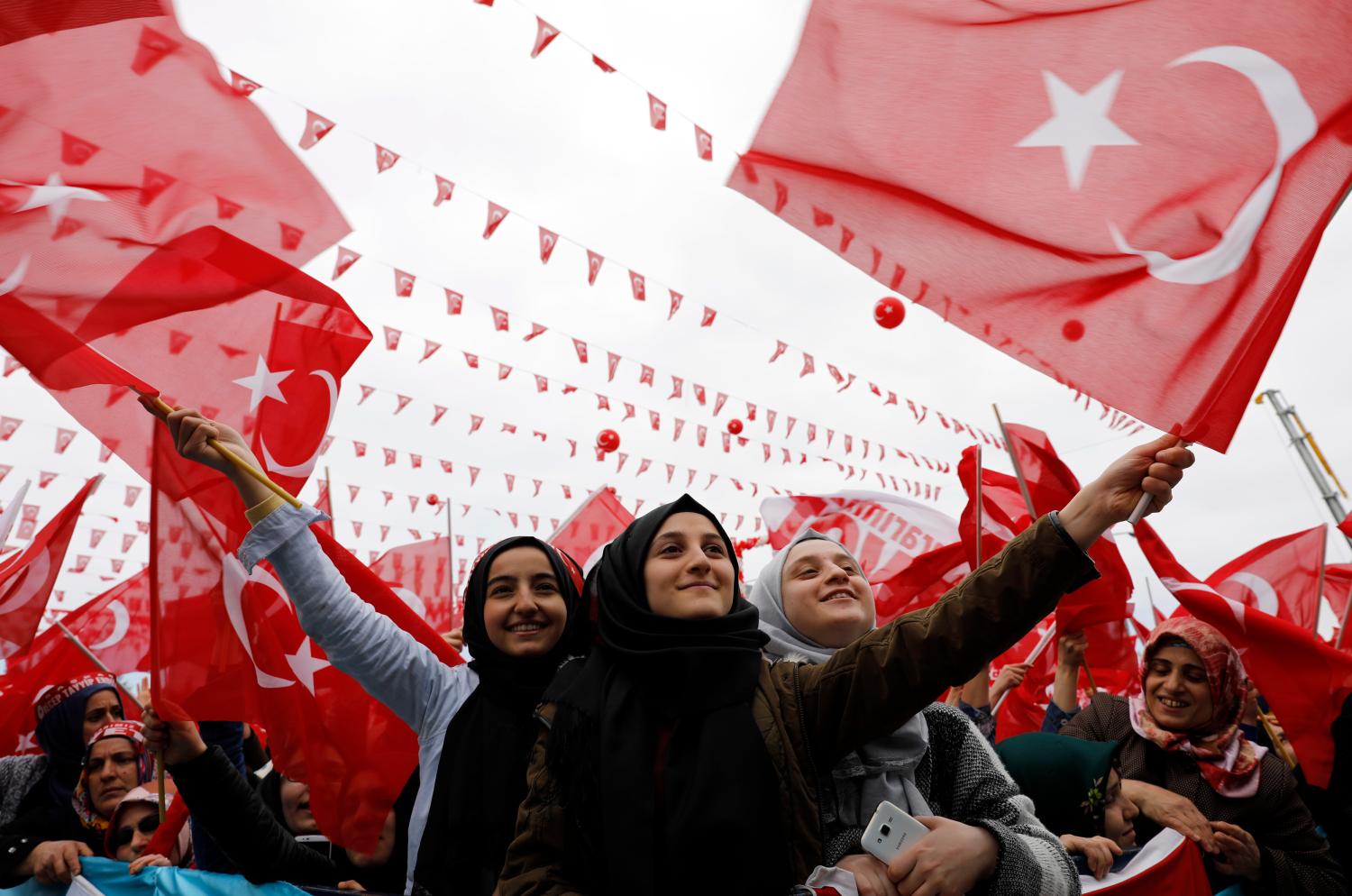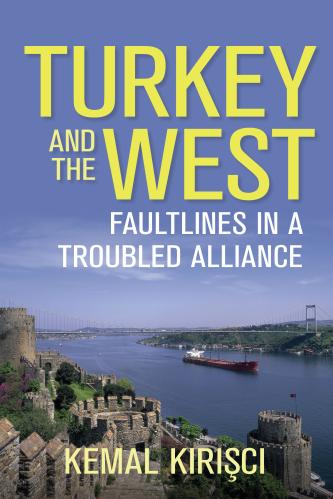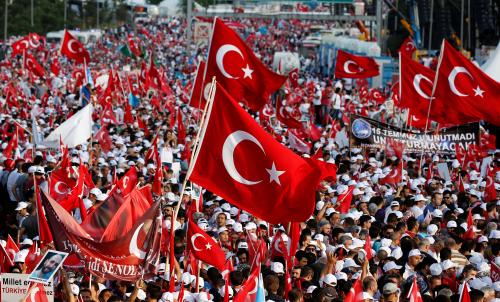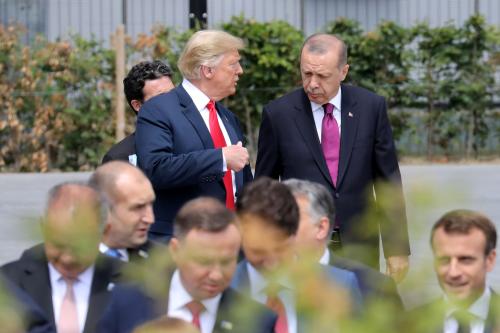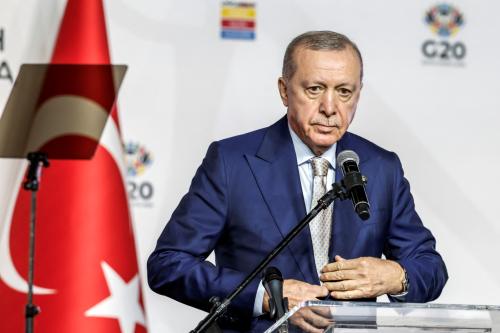Executive Summary
In July 2018, having triumphed in the presidential elections the previous month, Turkish President Recep Tayyip Erdoğan began to formally transform Turkey’s long-standing parliamentary system into a heavily centralized presidential one. The new system entrenched his one-man authoritarian rule at home and is having profound implications for the making and substance of Turkish foreign policy as well as Turkey’s relations with the West. This transition has taken place amid an international environment that is undergoing a significant transformation. Today, the West is far from a shining “city on the hill,” attracting Turkey and other countries toward the liberal values it is meant to represent. Populism and nationalism are on the rise on both sides of the Atlantic. President Donald Trump’s “America First” policies are eroding the world order characterized by multilateralism, free trade, and advocacy of liberal values. The European Union is weakened internally by the challenge of Brexit and by diminishing public support for a liberal Europe comfortable with diversity. Complicating this picture are emerging powers such as China, Iran, and Russia that are playing a much more assertive role on the global stage.
This paper argues that the confluence of a “new” Turkey and an evolving international order is likely to continue to strain Turkey’s relations with its Western allies. Although many of the challenges that crowd the Turkish-Western agenda predate Ankara’s formal introduction of its presidential system, these issues are likely to become more visible and harder to overcome. Yet, it is possible that the amount of authority and power the Turkish president has amassed for himself may also create new opportunities for transactional relationships. Furthermore, structural factors and geopolitical realities are likely to dampen Erdoğan’s temptation to break away from the trans-Atlantic alliance. This in turn may create some room for pragmatism and the possibility to improve cooperation between Turkey and the West in addressing common challenges. Against this background, anchoring Turkey to the West within a values-based framework no longer looks realistic. So how should the West approach Turkey? Which is better: engagement not based on rules, or rules-based non-engagement?
This paper recommends that moving forward, Turkey’s Western allies should bear in mind that:
• Geopolitical realities bind Turkey to the West. Trans-Atlantic allies should play the long game and try to find a functioning framework tied to credible conditionality. In the short term, the focus should be on realistic and pragmatic engagement with Turkey while insisting on rules-based cooperation.
• One common challenge to Turkey’s relations with its historical allies stems from pervasive negative discourse against the West in Turkey, as well as against Islam and Turkey in the West. To revive mutual trust between the two, leaders and policymakers on both sides should make a concerted effort to refrain from employing negative rhetoric toward each other.
• For U.S.-Turkish relations, given Trump’s disinterest in prioritizing the rule of law and basic rights and freedoms, it will be important that all branches of the government, business, and civil society keep these principles on their agenda.
• Urgently appointing a U.S. ambassador to Turkey and reconsidering U.S. tariff increases on Turkish aluminum and steel imports could be another confidence-building avenue to explore, especially given that the United States enjoys a persistent trade surplus over Turkey.
• Finding a pragmatic solution to the issue of Turkey’s purchase of Russian S-400 missiles will be an important step forward. A resolution that stops short of an outright cancellation of the purchase but limits the operationalization of the missiles in a manner that does not jeopardize NATO member countries’ immediate security should be considered.
• Once Turkey meets the relevant criteria, the EU should fulfill its pledge of visafree travel for Turkish nationals, as part of a broader public diplomacy effort to reconstitute reciprocal trust.
• Areas of EU-Turkish cooperation, such as counterterrorism, transportation, migration, and energy, should be further deepened in the spirit of win-win cooperation.
• Efforts to modernize the EU-Turkey customs union should be boosted and framed in the spirit of “rules-based cooperation” that benefits both sides.
• Last but not least, there is urgent need to make progress on the Cyprus issue, starting with a concerted effort to resolve the irony that Turkey and Turkish Cypriots are currently being punished for having supported the reunification of the island.
The Brookings Institution is committed to quality, independence, and impact.
We are supported by a diverse array of funders. In line with our values and policies, each Brookings publication represents the sole views of its author(s).

